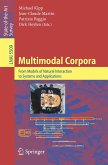TheInternationalSymposiumCreatingBrain-LikeIntelligencewasheldinFeb- ary 2007 in Germany. The symposium brought together notable scientists from di?erent backgrounds and with di?erent expertise related to the emerging ?eld of brain-like intelligence. Our understanding of the principles behind brain-like intelligence is still limited. After all, we have had to acknowledge that after tremendous advances in areas like neural networks, computational and arti?cial intelligence (a ?eld that had just celebrated its 50 year anniversary) and fuzzy systems, we are still not able to mimic even the lower-level sensory capabilities of humans or animals. We asked what the biggest obstacles are and how we could gain ground toward a scienti?c understanding of the autonomy, ?exibility, and robustness of intelligent biological systems as they strive to survive. New principles are usually found at the interfaces between existing disciplines, and traditional boundaries between disciplines have to bebroken down to see how complex systems become simple and how the puzzle can be assembled. During the symposium we could identify some recurring themes that p- vaded many of the talks and discussions. The triad of structure, dynamics and environment,theroleoftheenvironmentasanactivepartnerinshapingsystems, adaptivity on all scales (learning, development, evolution) and the amalga- tion of an internal and external world in brain-like intelligence rate high among them. Each of us is rooted in a certain community which we have to serve with the results of our research. Looking beyond our ?elds and working at the interfaces between established areas of research requires e?ort and an active process.
Bitte wählen Sie Ihr Anliegen aus.
Rechnungen
Retourenschein anfordern
Bestellstatus
Storno








